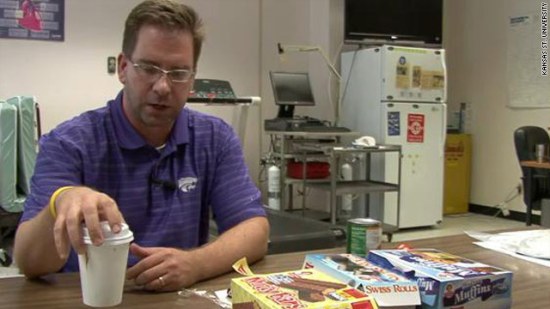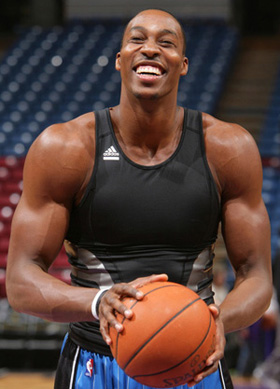Professor Loses 27 Pounds on Twinkie Diet: Why That Makes Sense
Mark Haub, professor of human nutrition at Kansas State University, ate a Twinkie every three hours for ten weeks in an attempt to prove that caloric intake, rather than the healthiness of food, was the main factor contributing to weight loss, to which I reply, “Duh.”
Halfway through the CNN article on the subject, it is revealed that Haub’s entire diet didn’t consist solely of junk food, but he also took a multivitamin pill, drank a protein shake, and ate some vegetables each day. The consumption patterns, an 1,800-calorie-per-day diet (for a man that should be receiving about 2,600) resulted in Haub dropping his body fat from 33.4 to 24.9 percent in two months.
His other health markers improved as well, including his bad cholesterol dropping 20 percent and his good cholesterol rising 20 percent. It may seem odd that a steady stream of cream-filled cake would decrease Haub’s bad cholesterol, but as Jackson Blatner of the American Dietetic Association pointed out, being overweight is the main issue with various other health risks, such as high cholesterol:
“When you lose weight, regardless of how you’re doing it — even if it’s with packaged foods, generally you will see these markers improve when weight loss has improved.”
Before his Twinkie diet, Haub tried a healthy diet that included the occasional unhealthy treat, and he wasn’t becoming healthier, which he feels is because he was eating too much, regardless of the mainly healthy foods he was eating.
As someone who has been regularly visiting a gym for over a decade and having grown up with a bodybuilder father and nutritionist mother, the results of Haub’s experiment aren’t surprising in the least. When I first started working out, I couldn’t gain weight no matter what I tried. I asked a large amount of people at the few gyms I attended at the time, and the advice received has always stuck out: Eat everything. The first (extremely in-shape) person I asked told me to buy a box of bakery cupcakes from the local grocery store and eat that after lunch a few times a week. The next (very ripped and cut) person I asked told me he ate a tub of chocolate pudding a few times a week after dinner. The message was clear: So long as you’re correctly working out, the type of food you eat doesn’t matter as much as you may think. This sentiment applies to Haub’s experiment: So long as you aren’t eating enough, you’ll lose weight. It’s common sense, for the most part. If the only thing you eat each day is one McRib, its less-than-stellar nutritional value won’t really pack on the pounds since one McRib isn’t even close to the amount of food a person is supposed to eat per day.
Even professional athletes, people whose job it is to be fit and healthy, follow the seemingly wacky advice I received when I first started working out. As mentioned in this article, Dwight Howard, center for the NBA’s Orlando Magic, sometimes eats McDonald’s before a game (in the case of that article, two Quarter Pounders, a large fry, and a large Sprite), and he looks like this:
If Haub continued his Twinkie diet, it is also possible that he would reach a light enough weight to where the unhealthy Twinkies would actually begin to put weight back onto his body, rather than continue the loss.
Yes, eating healthy will quicken weight loss and lessen health risks, but Haub, Dwight, a lifetime of advice from gym rats and common sense prove that eating the occasional cream-filled cake or greasy burger isn’t anything over which to fret, and it’s the amount of food eaten and amount of physical activity performed that are the real catalysts of weight loss.
(CNN via Workman Says Things)
Have a tip we should know? [email protected]

